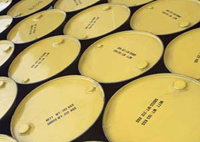Growing oil prices make Japan feel uneasy
The Japanese government expressed worries Tuesday about soaring crude oil prices and the U.S. sub prime mortgage crisis, noting in a key economic report that Japanese corporate profits may be weakening.

The Cabinet Office maintained its view that the world's second-largest economy remained on a steady recovery track supported by exports, and kept much of the same language from previous reports.
Japan took another step in making the dollar 's dominance a thing of the past.
Japanese oil refiners Cosmo Oil Co. and Japan Energy Corp. have started paying for Iranian crude oil in yen instead of dollars, announced company spokesmen on October 9. Both companies are following in the footsteps of Nippon Oil Corp.-Japan's largest oil refiner-which made the same announcement in September.
How significant is it that more and more nations are ceasing to use the dollar as a reserve currency?
Since the 1944 Bretton Woods Agreement, the US dollar has been the world's primary reserve currency. This has been especially true regarding the crude oil trade, in which the majority of nations pay for crude oil in dollars. The resulting massive demand for dollars has allowed the United States to accumulate trade deficits and fiscal debts without experiencing the negative economic impacts that such imbalances normally cause.
The switch to yen should have little negative impact on the Japanese economy. As the purchasing power of the dollar has decreased, the price of oil has skyrocketed to $80 a barrel. Any increase in value of the yen, due to increased oil-yen demand, will only make oil imports less expensive for a nation that is highly dependent on oil imports.
Source: agencies
Subscribe to Pravda.Ru Telegram channel, Facebook, RSS!


